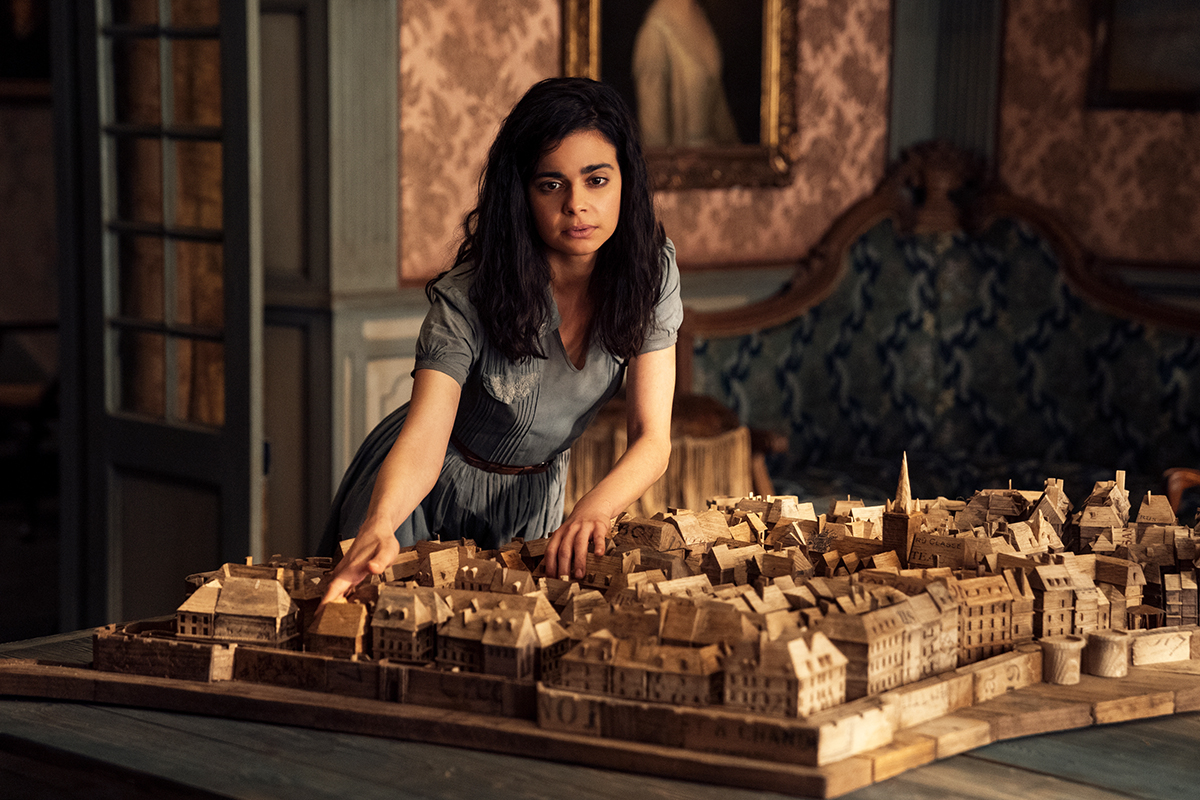Netflix’s ‘All the Light We Cannot See’ Doesn’t Capture the Tone of the Award-Winning Book
3/5 radio broadcasts.

The Pulitzer Prize-winning book All the Light We Cannot See by Anthony Doerr took us on a journey through World War II split between two perspectives, but the Netflix series of the same name doesn’t quite do the story justice.
Netflix’s adaptation mashes those two perspectives into one mini-series that condenses Doerr’s story, making the heart-wrenching tale something of spectacle rather than a nuanced look at its characters’ experiences. Marie-Laure LeBlanc (Aria Mia Loberti) is a young girl from Paris who lost her sight and had to escape her home with her father Daniel (Mark Ruffalo). When they move to the French countryside with his great uncle Etienne (Hugh Laurie), they end up in the throes of the resistance.
In the novel, all of this does happen, but it’s mixed in with stories of Daniel and Marie-Laure back in Paris, as well as stories of Werner (Louis Hofmann) growing up as an orphan and being forced, at the academy in Berlin, to use his skills with radios to help the Nazis. All of the heart of All the Light We Cannot See as a novel is condensed into small scenes and moments, lost in the focus on the action and suspense of the novel’s final act, making the show a four part mini-series of just those final moments and leaving you not feeling much of anything for the characters outside of Marie-Laure and her radio.
Even the moments that do mean a lot in the show only meant something to me because I’d read Doerr’s work. Without it, I don’t think I’d feel anything for it because the heartfelt moments are rushed through to get back to the action. The suspense is lost, and so much of Doerr’s beautiful work isn’t conveyed in the obsession with the book’s last moments.
Rushing to the end
While the book itself does use the same technique the show does by telling the story in a nonlinear structure, the book still gives us more time with both Werner and Marie-Laure. For the most part, the show belongs to Marie-Laure, and while I love that very dearly, it means that there are moments given to Werner that just don’t resonate with the audience in the show.
I don’t care nearly as much that he is trying to help Marie-Laure because he is still a Nazi soldier. It takes much longer for the show to highlight how he’s forced into this world and how much of this life isn’t his choice, and how he pushes back against it, and it doesn’t do a good job of highlighting that fact, either.
With Marie-Laure, we only get glimpses of her life in Paris and how her relationship with her father and Etienne grew when they moved to Saint-Malo later on. Still, the show itself has its moments, and Loberti in particular is breathtaking to watch as Marie-Laure throughout the series. The show as a whole just does not have the same appeal that the Doerr book did for me.
(featured image: Atsushi Nishijima/Netflix)
Have a tip we should know? tips@themarysue.com